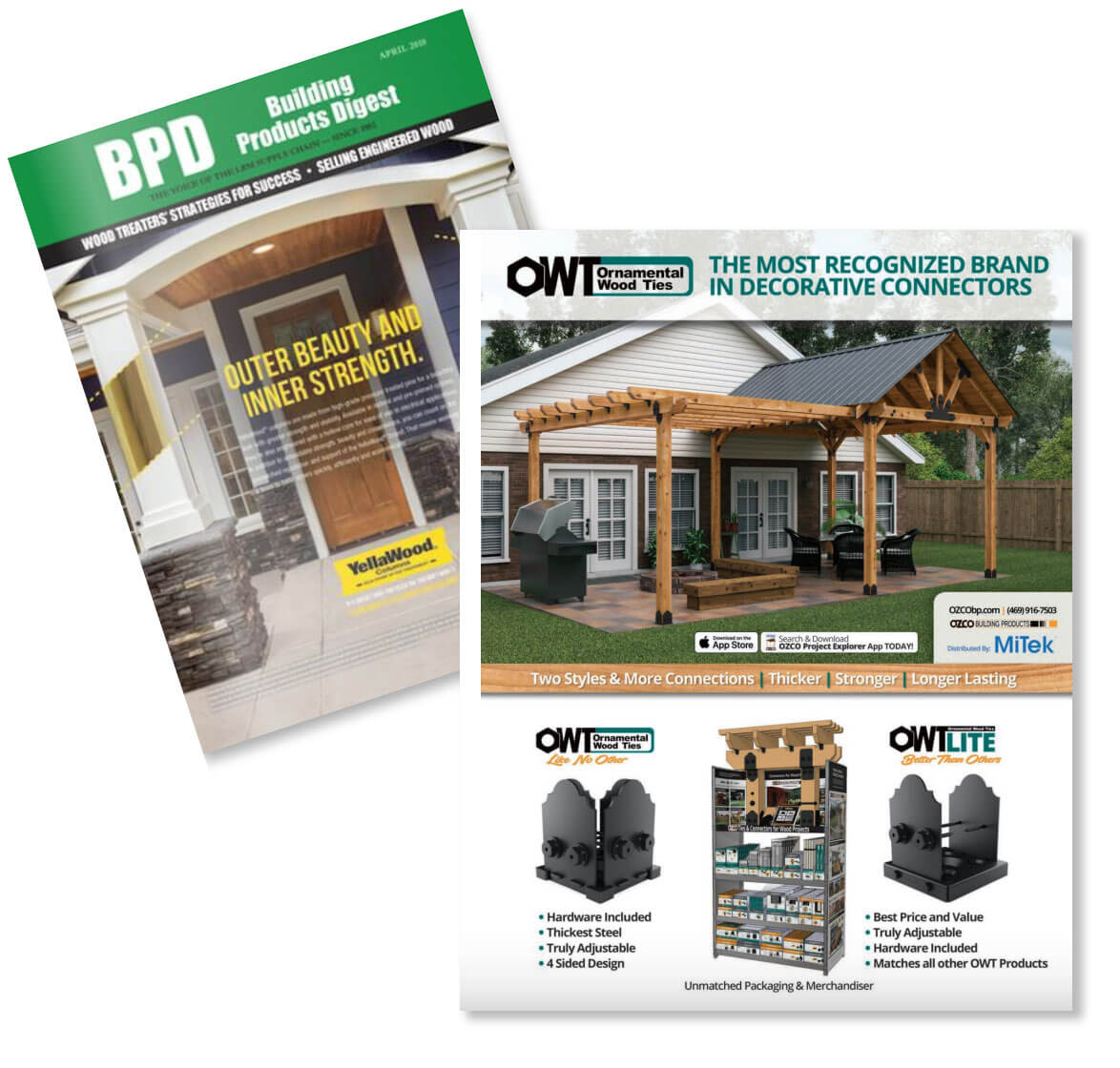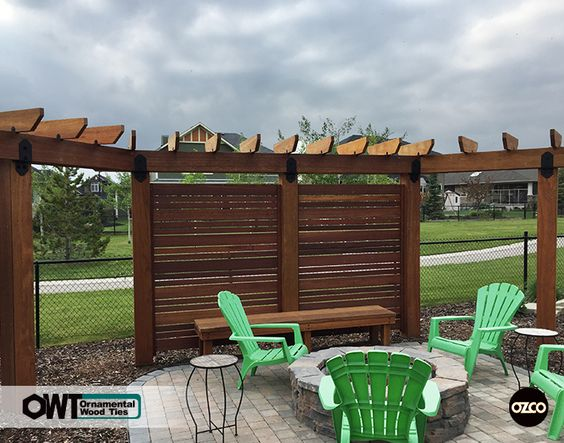DIY Outdoor Privacy Screen Ideas: Functional Deck Decorations to Cozy up Your Backyard Living Space
Decks are an extension of our homes’ living spaces—a spot to dine, to read, or to sit back and soak in the sun. But, while they may feel like an outdoor living room, they often lack the privacy offered by the overstuffed sofa in our family room.
Last summer, after staining and sealing a raised deck for a client, she mentioned that as excited as she was to decorate her new outdoor living space, she wasn’t thrilled about the view into her neighbor’s unkempt backyard. I told her I had a solution that would turn her exposed deck into a haven of privacy and then proceeded to introduce her to the wide world of privacy screens.
DIY outdoor privacy screen ideas are limited only by your imagination. Not only do they make your deck more private, they can also cut down on wind and offer some shade—all ways to improve the coziness of your home’s outdoor room. Installing a privacy screen, like lattice work, decorative panels, or a freestanding fence, is also a DIYer’s dream—relatively easy, fast, and low cost with a big payoff. And trailing vines, or the addition of potted plants, can easily add a natural element as well. You could run to the home improvement store this Saturday morning and be done early enough to show off your handiwork to friends at an afternoon BBQ—a private, invite-only deck party (no nosey neighbors allowed).
Custom Lattice Panels for Privacy
A classic choice to add some privacy to your deck is lattice. Lattice screens come in two common styles, grid and crosshatched, though some manufacturers may get creative and offer their own designs. Usually constructed of thin strips of wood stapled together in a pattern, wood lattices are the most common, but you can buy vinyl lattice screens as well. Either option is easy to work with, just cut and attach to a custom framework that fits your outdoor living space.
The Benefits of Lattice Panels:
- Easy, fast, and low cost: Lattice is easy to work with, requiring only common cutting tools to trim it. It’s also relatively affordable compared to custom art screens and is easy and quick to fasten to framework using a staple gun or polymer coated screws.
- Customizable: You can cut latticework to any shape or size and attach it to any design of framework you prefer. It can also be stained or painted in a variety of colors and shades. You could even make your own designs with little more than a basic staple gun.
- Does double duty: If you plan to add lattice to your deck railings as well, sections of lattice can be cut down to go twice as far.
- Low maintenance (vinyl options): Vinyl lattice does not require maintenance, just occasional cleanings to prevent mildew.
Problems Working with Lattice Panels:
- Not distinctive: Lattice is fairly common so will not stand out if you’re trying to create a unique setting on your patio. And vinyl offers very few color options.
- Low quality (vinyl options): Poor quality vinyl products may crack, fade, chalk, or even flex and pull apart during drastic temperature changes. Vinyl also has the tendency to mold which can be a headache to clean if not addressed quickly.
- High maintenance (wood options): Some wood lattice is thin and poorly constructed, falling apart quite easily. Wood lattice will also require regular maintenance to keep up the paint or stain so the wood doesn’t fade and wear—unless you love the look of grey, as some woods like Cedar and Redwood do not require staining.
Decorative Fence Panels for Privacy
Outdoor decorative panels are screens featuring a scene or design cut into them. They’re often made from iron or copper sheets, but wooden panels are available as well. And, both metal and wood options are easily found at most shops or online stores that sell outdoor decorations or garden supplies. The options for decorative panels really are just about endless.
Once you’ve found a decorative panel to compliment your deck and home, as a weekend DIYer you can easily make a frame to attach the panel to. Wood framework is the simplest and easiest option—and allows for a wide degree of personalization.
The Pros to Installing a Decorative Wall Panel:
- Endless style options: You have the option of DIYing whatever style or design you can dream up for your privacy screen.
- One-of-a-kind: The result is usually a one-of-a-kind piece of art for your deck, patio, or porch.
The Cons of Decorative Fence Panels for Gardens and Decks:
- Requires some experience: Decorative fence panels require a bit more DIY know-how and creativity as you are basically making custom privacy screens.
- Flight risk: You must take care to properly fasten the screens and panels so they don’t fall apart or take flight under high winds. This is why panels with slits or cutouts are ideal.
- Needs weatherproofing: Depending on the type of material the art is made of, you may have to weatherproof the piece. Wrought iron, iron, and steel will need some type of coating to avoid rust.
Ideas for Freestanding Outdoor Privacy Fence Panels
Freestanding options are basically pre-assembled sections of privacy fence that can be moved around your yard, deck, or patio. They are often latticework bordered by a wood frame, although there are also designs reminiscent of privacy fencing with a solid base and lattice at the top. Wood or wood framed screens are common and come in a wide selection of designs, while vinyl screens tend to offer fewer options but have the added benefit of extremely low maintenance.
The Benefits of a Freestanding Outdoor Privacy Fence:
- Flexibility: Freestanding panels are a great option if you like to keep your yard lively and move things around every so often. They are also ideal for areas that need a privacy fence but have nothing to attach lattice to.
- No DIYing required: These panels are easy to install. You just buy and drop them around your yard and deck.
- Affordable with good variety (wood options): Wood screens are usually relatively low cost and come in a wide variety of designs and colors.
- Low maintenance (vinyl options): Vinyl freestanding panels will not rust or decay.
The Disadvantages of Freestanding Fence Sections for Privacy:
- Few design options: Since they are pre-assembled, they aren’t the best choice if you want a high level of customization.
- Not for mounting: They may not be the best choice if you want to mount privacy screening to your pre-existing railings.
- Not sturdy: Care must be taken to ensure they are secured so high winds don’t knock them over.
- High maintenance (wood options): Freestanding screens made of wood need to be consistently maintained to keep the paint or stain from deteriorating and the wood from rotting.
- Few design choices (vinyl options): Vinyl color options are usually pretty limited.
- Low quality (vinyl options): Vinyl may grow mildew if not cleaned often. While it’s not damaging, it is unsightly. And low-quality vinyl may chip, fade, chalk, and distort easily or sooner than high-quality products.
While freestanding privacy fences may offer the least hassle, decorative panels offer truly one-of-a-kind options, and lattice is easy to customize for your space and decor. Whichever option you choose to add a sense of seclusion to your outdoor spaces, consider training crawling vines to grow on them, or adding a pergola to give yourself some shade and a bit of natural beauty.
For my client with the raised backyard deck, I was able to go back the next week and install a custom privacy screen for her in less than a day. She picked out some black decorative panels that I sprayed with a clear coat weatherproofer to give them a slight shine and keep them from rusting. I used OZCO 2-in-1 stain and sealer for the wood frame and OZCO timber screws to bring the project together. The stain/sealer combo saved me time and the hardware is top quality that I trust to last. After easily attaching the frame to her deck, my client now has the privacy to enjoy her space—and a little extra style added to her deck as well.
And, I promised her she’ll be enjoying it for more than a few seasons since I only use OZCO hardware on all my jobs. Their products are coated in zinc, powder-coating, and a corrosive inhibiting finish, which is perfect if you’re using ACQ-treated lumber. Even their timber screws are specially manufactured with a polymer coating to resist corrosion and reduce friction, making them easier to use. I don’t know of any other company that makes their products to such a high standard, so they’re my go-to brand. With OZCO on my side, I can stand behind my work with confidence.












Comment (1)
My husband and I have been thinking about getting a pavilion for our backyard. Thank you for all the tips on how to choose a truss design for it. I’m glad you mentioned that a steeper roof would be better for an area with heavy snowfall. We will have to take that into consideration.